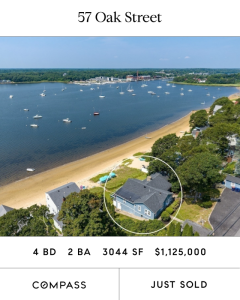‘I just think I have to do it’: High school sophomore fights climate crisis at local level
 Annica Dupre, a sophomore at Dartmouth High School, was recently invited to serve on the governor’s Youth Climate Council. Photo by Sean Flannelly
Annica Dupre, a sophomore at Dartmouth High School, was recently invited to serve on the governor’s Youth Climate Council. Photo by Sean Flannelly Annica Dupre, second from the left, attends a New York climate march. Photo by Megan Pogash
Annica Dupre, second from the left, attends a New York climate march. Photo by Megan Pogash Dupre helped UMass Dartmouth students and other local advocates spell out #BreakFreeFromPlastic with discarded nip bottles.
Dupre helped UMass Dartmouth students and other local advocates spell out #BreakFreeFromPlastic with discarded nip bottles.  Annica Dupre with discarded nip bottles during the “Break Free from Plastic” event. Photo by Mary Lou Nicholson
Annica Dupre with discarded nip bottles during the “Break Free from Plastic” event. Photo by Mary Lou Nicholson Dupre attended the recent climate march in New York City with Megan Pogash, Mary Lou Nicholson and Laura Gardner. Photo by Megan Pogash
Dupre attended the recent climate march in New York City with Megan Pogash, Mary Lou Nicholson and Laura Gardner. Photo by Megan Pogash Annica helped local service group Be the Solution to Pollution clean up New Bedford Riverside Park. Photo by Annica Dupre
Annica helped local service group Be the Solution to Pollution clean up New Bedford Riverside Park. Photo by Annica Dupre Dupre talks to the Select Board at its Aug. 28 meeting. Photo by Dartmouth Community Media
Dupre talks to the Select Board at its Aug. 28 meeting. Photo by Dartmouth Community Media Annica Dupre, a sophomore at Dartmouth High School, was recently invited to serve on the governor’s Youth Climate Council. Photo by Sean Flannelly
Annica Dupre, a sophomore at Dartmouth High School, was recently invited to serve on the governor’s Youth Climate Council. Photo by Sean Flannelly Annica Dupre, second from the left, attends a New York climate march. Photo by Megan Pogash
Annica Dupre, second from the left, attends a New York climate march. Photo by Megan Pogash Dupre helped UMass Dartmouth students and other local advocates spell out #BreakFreeFromPlastic with discarded nip bottles.
Dupre helped UMass Dartmouth students and other local advocates spell out #BreakFreeFromPlastic with discarded nip bottles.  Annica Dupre with discarded nip bottles during the “Break Free from Plastic” event. Photo by Mary Lou Nicholson
Annica Dupre with discarded nip bottles during the “Break Free from Plastic” event. Photo by Mary Lou Nicholson Dupre attended the recent climate march in New York City with Megan Pogash, Mary Lou Nicholson and Laura Gardner. Photo by Megan Pogash
Dupre attended the recent climate march in New York City with Megan Pogash, Mary Lou Nicholson and Laura Gardner. Photo by Megan Pogash Annica helped local service group Be the Solution to Pollution clean up New Bedford Riverside Park. Photo by Annica Dupre
Annica helped local service group Be the Solution to Pollution clean up New Bedford Riverside Park. Photo by Annica Dupre Dupre talks to the Select Board at its Aug. 28 meeting. Photo by Dartmouth Community Media
Dupre talks to the Select Board at its Aug. 28 meeting. Photo by Dartmouth Community MediaFive years ago, Annica Dupre wrote a poem about the dangers of styrofoam pollution for a fifth grade project — now, she’s working to eliminate styrofoam trays from the Dartmouth High School cafeteria.
The anti-pollution campaign is just one of a number of local projects led by Dupre, a passionate environmental and climate advocate — and a high school sophomore.
To name a few: In 2022, Dupre collaborated with students from UMass Dartmouth to spell out “Break Free from Plastic” with collected single-serve alcohol bottles. Over the summer, she became a member of the governor’s Youth Climate Council, collaborating with students from across the state. In August, she spoke before the Select Board about banning nip bottles and plastic bags in town. And in September, she attended a national climate march in New York City.
For Dupre, it’s not just a passion — it's an imperative.
“I just think I have to do it,” Dupre said. “The climate crisis, it’s the single most important issue of our time.”
For younger generations, the warming climate presents tangible, dangerous outcomes. Climate change anxiety, or ecoanxiety, affects an increasing number of Americans, according to the American Psychological Association.
A landmark 2021 study from the University of Bath surveyed 10,000 young people from ten countries and found that more than half were “very worried” about the warming climate and close to half said their feelings about the warming climate “negatively affected their daily life and functioning.”
Dupre said her climate actions make her feel a little more in control.
Her real entre into environmentalism began at Dartmouth Middle School. A 7th grade science research project with librarian Laura Gardner mostly inspired essays on animals and ecosystems from other students, but Dupre sought a political question: how has each nation progressed on the Paris Climate Accords?
Dupre said that project got her and Gardner talking. The two became closer collaborators when Dupre served as president of the honor society, which Gardner advises. Gardner, also the head of the Massachusetts South Coast Climate Reality Project, introduced Dupre to some local climate advocacy actions, including local beach cleanups with Be the Solution to Pollution, headed by Mary Lou Nicholson.
“She's genuinely very worried about the future — but she sees that every time she gets involved in doing some sort of activism, it helps,” Gardner said.
“I think the thing that helps them with all this … is that they, they can do something, and that it's okay for them to speak out and take action and teach other people,” Nicholson said.
Both Gardner and Nicholson provide Dupre with guidance, but she’s often the one seeking it.
“A lot of times when you're a teacher, you're telling people things, and they actually don't want the information,” Gardner said. “Annica — she's eagerly asking for advice.”
“I owe it all to Ms. Gardner for seeing that I was interested in this and giving me more options,” Dupre said.
At one of the beach cleanups, Gardner and Nicholson asked Dupre to give a speech. Dupre showed up with “two or three pages of well-researched essay,” Gardner said.
Over the past few years, Dupre has only become more engaged. When she spoke to the Select Board in August, she asked the elected representatives to ban both single-use plastic bags and single-serve “nip” bottles in town. Board members were apprehensive about the latter action, arguing that alcohol distributors could easily find loopholes, but a plastic bag plan could move forward, potentially to June Town Meeting.
Dupre said her “forte” is plastic pollution, as it’s the subject she’s most knowledgeable about. Plastics are petroleum-based products that require fossil fuels at multiple stages in their production cycle.
“Fossil fuels are included in every part of a plastic’s life,” Dupre said. “It’s just attached to so many different aspects of the climate crisis.”
Dupre said she understands the Select Board’s concerns about banning nip bottles, but felt as if they weren’t appreciating “the gravity” of banning the bottle, and that companies likely won’t spend the time creating a loophole for just a few towns across the state.
Still, as a sophomore in high school, Dupre knows there’s a lot she doesn’t know. Over the summer, she contacted Public Health Director Chris Michaud about banning nip bottles and styrofoam in town, and said he “brought up a lot of good points” about the difficulties composting some biodegradable materials.
“Sometimes I’m like, ‘Oh, I don’t know enough about this,’” Dupre said. “It’s a learning experience, and I try not to let it affect me too much.”
While Dupre said she’s not alone in her climate worries — other students are concerned, too — she has had trouble getting people her age involved in direct climate action. But now that she’s part of the Youth Climate Council, she’s connecting with other environmentalists across the state: “It’s an amazing feeling,” Dupre said.
“It makes me so hopeful and so motivated and inspired to know that I'm not alone,” Dupre said.
About seventy students comprise the Youth Climate Council. The goal is to get students involved in government actions, and eventually the group may propose an action plan to the governor. They’ve only had one meeting so far, which mostly included introductions and brainstorming.
Locally, Dupre is still pushing Dartmouth Public Schools on its styrofoam policy; the budget manager recently told her they are “seriously looking into” the problem, and the high school now has a hybrid of compostable trays and thinner styrofoam trays, which she’d also like to see removed.
While ever-assured in her activist work, Dupre’s less certain about where this road will take her. A career in environmental advocacy or politics would be an easy line to draw, but Dupre’s not sold on any particular path. She might be interested in a career in journalism — evidenced by her diligent work in Dartmouth High School’s student newspaper, the Spectrum — but “journalism is writing a lot about problems” and she wants to be the solution.
After the Break Free from Plastic event, Nicholson said Annica immediately interviewed her for an article about the work for the school paper.
“And she actually got me to cry,” Nicholson said. “I was like, ‘What the heck, kid?’ … She did a great job with that, just asking me questions — very thoughtful ones.”
But even after Dupre moves on to a lucrative muckraking career, her attitude and enthusiasm will stay with her allies and advisors.
“She’s just one of those students you’re never going to forget,” Gardner said. “Every teacher has a few.”
“This kid is going to be a great leader,” Nicholson said. “And she already is.”








































